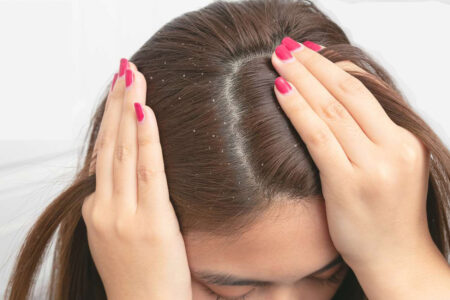Dandruff is a common scalp condition characterized by the flaking of dead skin cells. It is often accompanied by itching and can be embarrassing. Dandruff can have several causes, including dry skin, oily skin, irritated skin, or an overgrowth of a yeast-like fungus called Malassezia. It’s essential to be preventing and treating dandruff. So be …
